What is the mechanism of action of aspirin in causing gastritis and gastric ulcer?
Aspirin has a stomach out of the people of everyone to eat less, it is best not to eat, the door aspirin containing horse Fei too heavy to eat will affect the stomach, aspirin can cure colds and fevers, but also to treat rheumatism patients, people with stomach problems to eat less.
Thanks Goku for the invite!
Dr. Talentless, also a licensed pharmacist, to answer this question.
If you are satisfied with the answer, remember to follow Dr. Talentless.
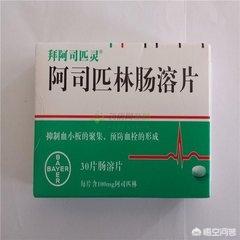
Aspirin is very widely used and well known to most people.
Previously, it was mainly used for antipyretic and analgesic anti-inflammatory.
Nowadays, it is mainly used for the prevention of cardiovascular embolic diseases.
Aspirin belongs to the group of non-steroidal anti-inflammatory drugs (abbreviated NSAIDs), of which there are many, e.g., ibuprofen, anti-inflammatory pain, aceclofenac, celecoxib, etoricoxib, nimesulide ......
Aspirin is a non-selective COX-inhibiting, non-selectivity means many roles and imprecision.
Maybe people don't quite know what COX is?
It is the body's catalytic enzyme that converts arachidonic acid into prostaglandins, called cyclooxygenase in Chinese.
Physiologic prostaglandins, which are indispensable to the body, do not require aspirin at this time; overexpression of prostaglandins manifests itself as redness, swelling, and heat, at which point aspirin can come on board.
Aspirin is antiplatelet, inhibits TXA2 and prevents platelet aggregation, which is the rationale for its use in the prevention of cardiovascular events。

So how does aspirin cause gastritis stomach ulcers?
1, as it is a non-selective COX inhibitor, taking it will inevitably result in physiologic prostaglandin suppression. And prostaglandins are critical to the blood supply and mucosal renewal (3 days) of the gastric mucosa! So, theoretically, there is an inevitability that aspirin causes gastritis gastric ulcer.
2, aspirin antiplatelet, inhibit the role of TXA2 can also aggravate gastritis gastric ulcer bleeding.TXA2 thromboxane effect and prostaglandins opposite, look at the name you know has a coagulation effect, it is produced by platelets, half-life of only 30 seconds.
3, Aspirin is acetylsalicylic acid, and theoretically all acids are bad for stomach ulcers.
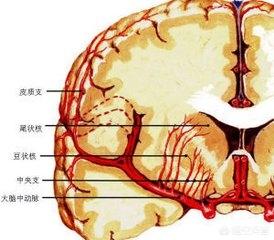
Two prominent drawbacks of aspirin:
1, causing thrombocytopenia and gastric bleeding
The incidence is high, with varying data, personally >15%. Gastric hemorrhage due to aspirin is frequently encountered clinically.
2, Aspirin resistance
It is the ineffectiveness of taking aspirin. The incidence is also above 15%.
Take away these two points, and less than 70% of people can prevent cardiovascular embolism with aspirin.
So how does aspirin work to reduce gastritis stomach ulcers?
Soluble tablets
small dose
take medicine after a meal
Try not to associate with other NSAIDs
Use of acid-suppressing agents, etc.
All of these relatively reduce the incidence of gastritis gastric ulcers caused by taking aspirin.

Thanks for the invite!
Follow Dr. Lee and you talk about health, bring you more and more practical health knowledge!
Aspirin, also known as acetylsalicylic acid, is a non-steroidal anti-inflammatory and analgesic drug with anti-inflammatory, analgesic and antipyretic effects. 30 years ago, oral aspirin was mainly used for the above purposes, and the effective dosage was 500-1,000 mg (note that avoidance of its use under the age of 18 years, regardless of the purpose, increases the risk of Reye's syndrome). And in the last 30 years, aspirin has been found to have an antiplatelet aggregation effect and is used for the prevention of ischemic cardiovascular disease, with reasonable doses of 75mg-325mg.
Aspirin causes stomach ulcers or stomach bleeding for these main possible reasons.
1. By inhibiting cyclooxygenase-1, prostaglandin depletion causes mucosal and systemic effects in the gastrointestinal tract. Prostaglandins protect the integrity of the gastric mucosa by increasing the local blood flow and promoting the synthesis and secretion of mucus and bicarbonate, thus playing a key role in protecting the gastric mucosa, whereas aspirin is likely to reduce the gastric mucosal protection by inhibiting prostaglandins.
2. The acidic environment in the stomach causes aspirin to remain nonionized, allowing it to accumulate in the cells of the gastric mucosa, thereby altering cell permeability and causing ulcers.
3. In the absence of normal prostaglandin synthesis, the stomach lining becomes more susceptible to exogenous (e.g., smoking) or endogenous factors (Helicobacter pylori, acid, pepsin, bile salts), and is therefore more susceptible to peptic ulcers and bleeding complications.
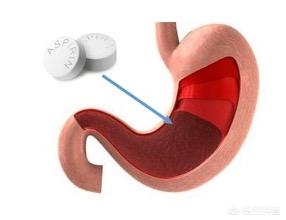
4. The antiplatelet aggregation effect of aspirin increases the risk of bleeding in patients with pre-existing gastric ulcers.
5. Aspirin use increases the risk of gastric ulcers or bleeding in patients with a history of peptic ulcers or ulcer bleeding; concomitant use of other non-steroidal anti-inflammatory analgesics or antiplatelet and anticoagulant medications; Helicobacter pylori infection; and other factors that may increase the risk of peptic ulcers, including tobacco use, excessive alcohol consumption, drug use, and emotional stress. These factors have the potential to contribute to ulcer formation by increasing gastric acid secretion, which ultimately leads to a weakened mucosal barrier and an increased risk of ulcer bleeding.
Therefore, patients who have had gastric ulcer bleeding are not recommended to take aspirin for prevention of cardiovascular disease, and can switch to other antiplatelet or anticoagulant drugs.

As the title suggests, patients often come to the clinic with bleeding caused by taking aspirin, which is a cyclooxygenase inhibitor that exerts its antiplatelet effect mainly by reducing the synthesis of thromboxane A2 (TXA2). Currently, it is mainly used in acute myocardial infarction, angina pectoris, atrial fibrillation, valvular heart disease, and post-angioplasty conditions. However, it causes more prominent gastrointestinal damage, mainly manifested as gastric mucosal erosion and ulceration, and bleeding or perforation can occur in severe cases.

The possible mechanisms are as follows: Firstly, aspirin selectively inhibits the activity of cyclooxygenase COX, especially COX-1, which reduces the synthesis and release of endogenous prostaglandins, destroying the barrier effect of the gastrointestinal epithelial mucosa and causing the invasion of bacteria and invasive factors in the gastrointestinal tract, thus inducing the generation of new inflammatory lesions and ultimately the recurrence of the old ulcer foci. Secondly, the direct chemical stimulatory effect of aspirin on the gastrointestinal mucosa, due to its metabolic characteristics of the enterohepatic circulation, thus prolonging its contact time with the intestinal mucosa, and the intestinal luminal contents, such as bile salts, bacteria, and food, can further induce injury, with bacteria probably being the main invasive factor. Finally, aspirin can induce neutrophil aggregation and infiltration in the damaged areas of the gastrointestinal mucosa, further exacerbating inflammation as well as immune damage in the damaged areas.
Hope you can help, welcome to pay attention to the "Chinese medical science platform" headlines, to get more professional and original medical science knowledge, this article for the original content, image source network, unauthorized refused to reproduce.
Aspirin, this drug, generally has two aspects of therapeutic effect, when applied in large doses (more than 0.5g), used for antipyretic and analgesic, and small doses of long-term use (generally recommended dose of 75 ~ 162mg / day), can effectively prevent the risk of thrombotic cardiovascular disease, this drug when taking, especially in the process of long-term use, may cause some gastric mucosal damage, but if it is said to cause gastritis, gastric ulcer, it is a bit alarmist.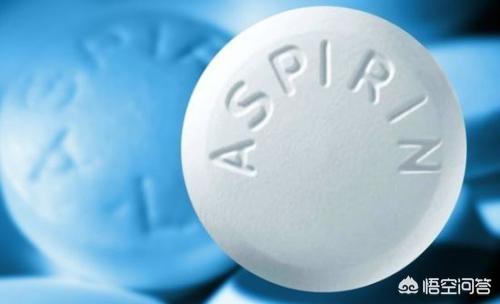
Mechanism of action of aspirin in possible damage to the gastric mucosa
Aspirin's generic chemical name is acetylsalicylic acid, itself salicylic acid this substance, the irritation of the stomach is very strong, the drug chemists, the structure of salicylic acid added an acetyl group, thus greatly reducing its irritation, thus making aspirin into a popular worldwide centuries-old drug, but reduced irritation, is not the same as no, therefore, from the drug itself, aspirin on the mucous membranes There is a certain amount of direct irritation.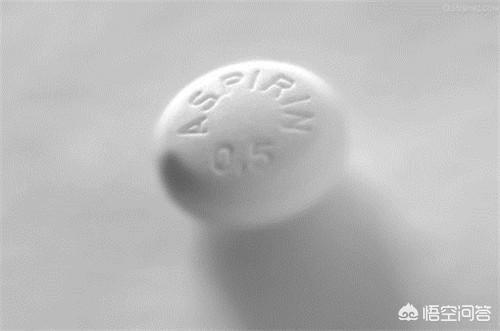
Therefore, for the long-term use of aspirin to prevent cardiovascular disease in the elderly, we generally recommend the choice of enteric-coated preparations, can minimize the long-term use of aspirin on the gastric mucosa of direct stimulation.
However, even if you take enteric-coated tablets, they may cause some gastric mucosal irritation and damage. The reason for this is that the internal mechanism of aspirin in the human body is through the inhibition of prostaglandin (PG) synthesis, and prostaglandin is a very important substance to maintain the health of the gastric mucous membrane and normal blood flow, therefore, during the long-term use of enteric-coated tablets of aspirin, due to the reduction of PG, it is also possible to lead to the emergence of the problem of damage to the gastric mucous membrane.
High-risk groups for gastric mucosal damage caused by long-term aspirin use
The same drug, some people eat half a year led to gastric bleeding, while some people ate ten years but no problem at all, due to the different physique, a variety of comprehensive external factors are different, aspirin for the gastric mucosa caused by the chances of damage are also very different, the following groups of people, in the long term during the use of aspirin, should be more aware of aspirin may cause gastrointestinal bleeding problems - -
1. People who are positive for Helicobacter pylori, when Helicobacter pylori infects the stomach, it releases toxic substances, destroys and stimulates the gastric mucosa, and reduces the resistance of the gastric mucosa. If it is superimposed on the effect of aspirin, it will lead to damage of the gastric mucosa, occurrence of gastric ulcers, and an increase in the chances of gastric hemorrhage. Therefore, before the long-term application of aspirin, should be screened for Helicobacter pylori infection, if it is a positive infection, should be done first eradication treatment, and then take aspirin best.
2. Friends with a family history of gastric disease, gastric disease is generally not hereditary, but the resistance of the stomach and the strength of the gastric mucosa, also known as the "constitution", is often inherited, so friends with a family history of gastric disease, even if there is no discomfort in the stomach before the application of aspirin, but also to pay special attention to aspirin for the stimulation of gastric mucosa and damage to the effect. damage to the gastric mucosa.
3. Long-term application of other non-steroidal anti-inflammatory drugs friends, aspirin itself is also a non-steroidal anti-inflammatory drugs, and other non-steroidal anti-inflammatory drugs, due to very similar mechanism of action, for the gastric mucosa also has a certain degree of irritation, so should pay special attention to the health of the gastric mucosa.
4. Long-term bad mood, stress, anxiety friends, emotions for the stomach is a great influence, before the discovery of Helicobacter pylori, scientists have been emotional repression as one of the main causes of gastric ulcers, long-term repression of anxiety, not only lead to neurasthenia, but also make the stomach's resistance to decline, leading to aspirin damage to the gastric mucosa of the chances of increasing.
5. Smoking and drinking friends, whether smoking or long-term alcohol, especially those who often drink a lot of alcohol, take aspirin during the period, must quit smoking and alcohol, smoking is harmful to the health of the gastric mucosa, and drinking alcohol is to increase the risk of aspirin lead to the risk of gastric hemorrhage chances.
Aspirin is a non-steroidal anti-inflammatory pain reliever, along with ibuprofen, diclofenac sodium, and so on, and such medications do damage the mucous membranes of the gastrointestinal tract and cause gastrointestinal side effects.
Because aspirin is used for pain relief and anti-inflammatory need a larger dose, the gastric mucosa damage is greater, so now it has been basically not use it anti-inflammatory pain, but for anti-platelet aggregation, for cardiovascular and cerebrovascular disease prevention.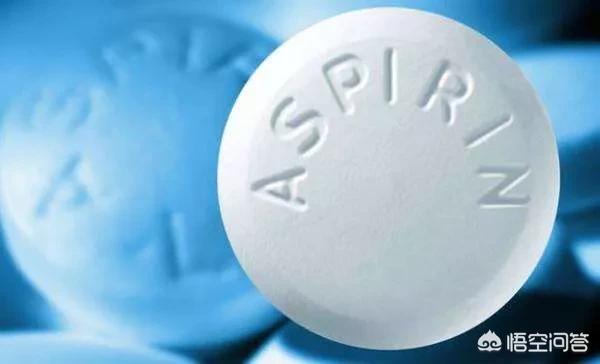
Aspirin and other NSAIDs are damaging to the gastric mucosa for two main reasons:
1. After ingestion of NSAIDs, they present a non-ionic state in the gastric acid environment (the lower the pH, the lower the degree of dissociation), which can easily enter into gastric cells and cause damage to gastric cells.
From this point of view, if you consider, the appropriate increase in intragastric pH, so that fewer NSAIDs enter the gastric cells, can reduce the damage to the stomach. Therefore, the use of proton pump inhibitors such as omeprazole can reduce the damage of NSAIDs to the stomach.
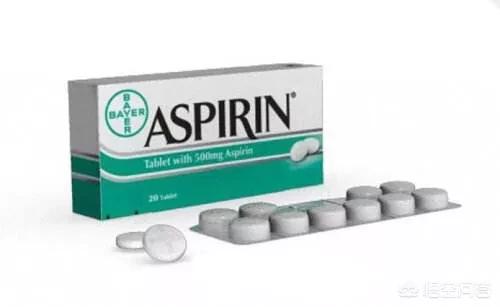
2. The damage to the gastric mucosa caused by non-steroidal anti-inflammatory drugs is not only due to their entry into the gastric cells. More importantly, it can inhibit the synthesis of prostaglandins, which have a protective effect on the gastric mucosa, so non-steroidal anti-inflammatory drugs damage to the stomach is because of the weakening of the gastric mucosa's defense.
So if you use non-steroidal anti-inflammatory drugs such as aspirin you can also choose magnesium aluminum carbonate, aluminum thioglycollate and other drugs that protect the gastric mucosa.
I'm Pharmacist Anonymous, click to follow and I'll share more of my drug knowledge with you.
Aspirin is a legend in the history of medicine, and its introduction changed many things.
Its clinical application direction is more, but at present the most common is the field of cardiovascular and cerebrovascular disease, this kind of patients often need to insist on taking aspirin all year round, a day do not dare to neglect, this is because of the cardiovascular and cerebrovascular disease patients' blood vessels there is a narrowing of the blockage, and aspirin can inhibit platelet coagulation.
This in itself is a good thing, but aspirin, when taken, acts on all parts of the body, in addition to platelet inhibition of key blood vessels, the gastrointestinal system will be similarly affected, and if the patient himself suffers from gastritis, gastric ulcers, and other diseases, then taking aspirin will make the bleeding more than one, further aggravating the condition.
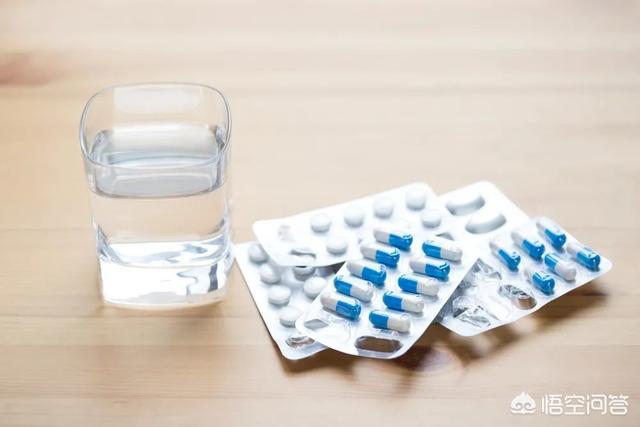
This impact will also change over time!
Patients typically damage the gastric mucosa within 1-3 days of taking the drug, peaking around 90 days, and the vast majority will damage the GI tract within a year of taking the drug; this effect varies with the dose applied, but it is worth noting that, "even the smallest doses can have an effect on the GI tract."
What you need to know: aspirin will have been cyclooxygenase activity, so that endogenous prostaglandin synthesis is reduced, which in turn makes the gastric mucosal blood flow, mucus, bicarbonate synthesis and secretion is reduced, and the protective function of the gastric mucosa is reduced.
Even if you are taking an aspirin enteric-coated form, the same protective layer of the gastric mucosa is harmed, just with less direct initial irritation, and care is still needed.
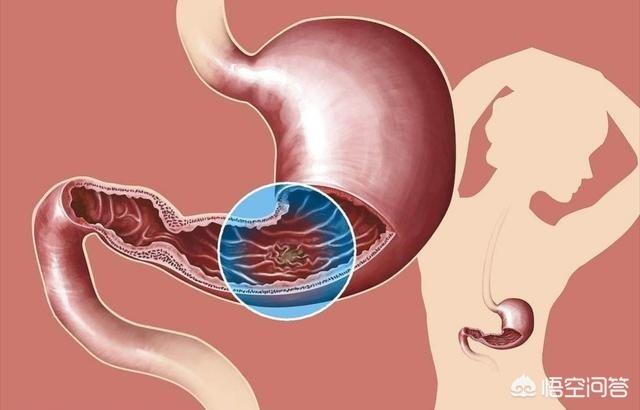
Among the many people who take aspirin, they are high-risk individuals:
1, Higher age group (65+)
2, People who have ever had a peptic ulcer or bleeding
3, who underwent double anticoagulation (taking aspirin and clopidogrel at the same time)
4, concurrent use of other NSAIDs
5, Presence of co-infection with Helicobacter pylori

I hope my answer helps you!
If there's anything you don't understand, comment and private message me!
Dr. Kami Kamuchi;
Answers are for informational purposes only;
Feel free to follow and leave a comment;
Talk, discuss and learn from each other!!!
aspirin (loanword)
It is a commonly used antiplatelet drug in our clinic, which has an important role in both the prevention and treatment of cardiovascular and cerebrovascular diseases!
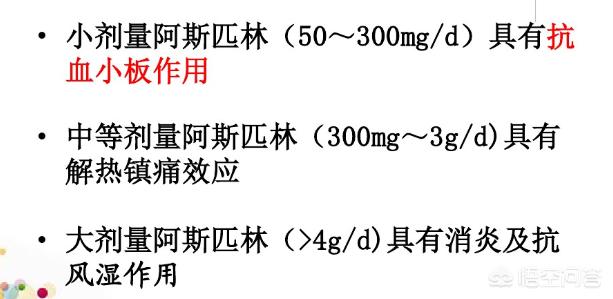 (Note: This is an indication of the pharmacological effects of different doses of aspirin, which clinically, for our neurologists, are mainly applied for their antiplatelet aggregation effects.)
(Note: This is an indication of the pharmacological effects of different doses of aspirin, which clinically, for our neurologists, are mainly applied for their antiplatelet aggregation effects.)For the mechanism of action of aspirin:
- Antiplatelet aggregation:
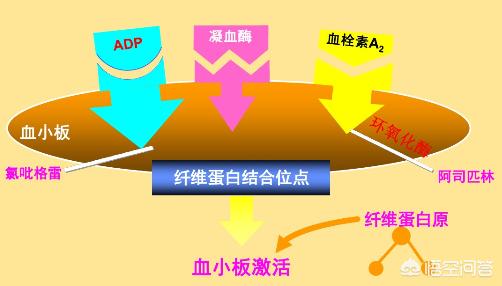
Inhibits platelet thromboxane A2 (ATA2) production and thus platelet aggregation by irreversible inhibition of cyclooxygenase (COX) synthesis!
Irritating effects on the gastrointestinal tract:
Aspirin belongs to the class of nonfontainer anti-inflammatory drugs (NSAIDs), and the main mechanisms of gastric mucosal damage may include the following three components:
One: direct irritating effect on the gastric mucosa;
Second: interferes with prostaglandin synthesis and weakens the mucosal barrier;Thirdly: inhibit thromboxane A2 synthesis, anti-platelet aggregation and induce bleeding;
I hope my answer is helpful to you!
Welcome to follow "Dr. Shen Nei Xiaomei" to learn more about health information!
Aspirin is a non-steroidal anti-inflammatory drug, in addition to aspirin, the rest of the non-steroidal drugs are: indomethacin, nimesulide, diclofenac sodium, ibuprofen and so on, these drugs in small doses will have fever-reducing and pain-relieving effects, large doses will have anti-inflammatory, anti-rheumatic effect.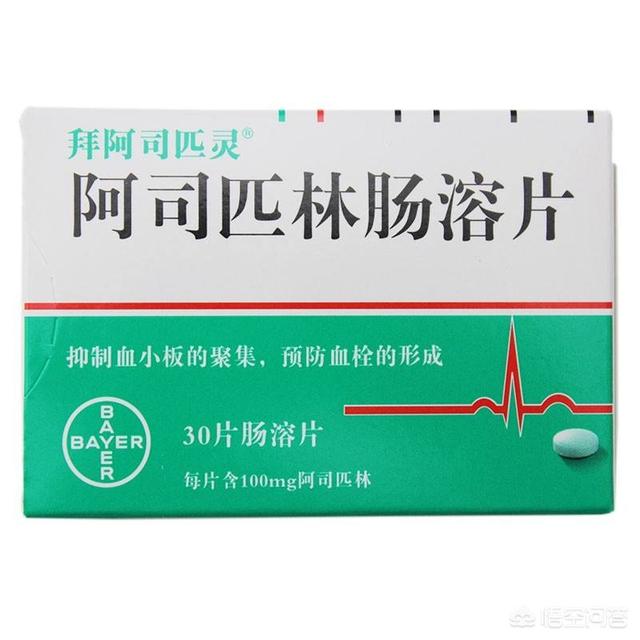
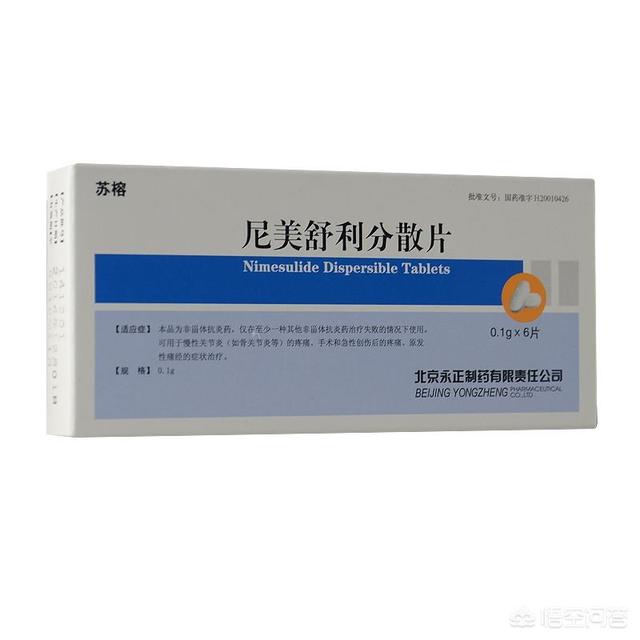
NSAIDs are a cause of digestive disorders and can cause indigestion, abdominal pain, nausea, vomiting, diarrhea, and gastrointestinal bleeding.
Of course, if you take these drugs for a long time, it will cause the occurrence of gastric inflammation and ulcers, the reason why these drugs can cause these gastric symptoms and diseases is because these drugs for the destruction of the barrier function of the gastric mucosa, omit 200 words here, when the barrier function of the gastric and duodenal mucosa has been destroyed, resulting in the gastric mucosa's weakness and susceptibility to be more susceptible to damage by a number of minor injury factors, and thus occurring gastritis and gastric ulcers. Thus, gastritis and gastric ulcer occur.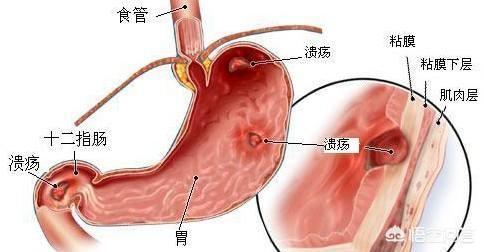
So clinically, patients with gastric diseases in taking such drugs, should be appropriate to take and choose, as far as possible, choose some for the gastric mucosa damage less drugs or enteric soluble preparations, such as must take such drugs for gastric patients, you can add some gastric mucous membrane protector, to reduce the damage of such drugs for the gastric mucous membrane, and also when taking such drugs, must be taken after a meal, avoid taking big The dose of the drug is not to be taken.
The last point is that patients taking NSAIDs for a long period of time should have a gastroscopy in order to clarify the extent of the damage to the gastric mucosa, and take measures such as stopping the drug if necessary.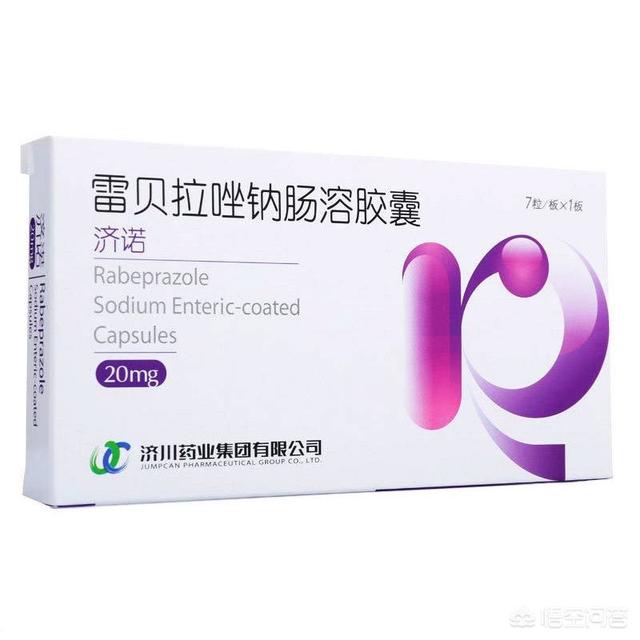
These are the views of Xiao Ke, welcome your questions and additions, pay attention to Xiao Ke, to learn more about health knowledge.
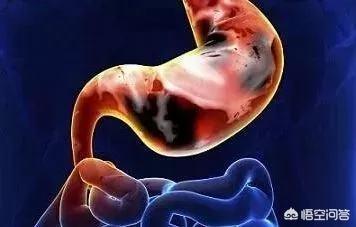
Aspirin is a household name in the cardiovascular community, and in recent years, has been widely used for more than just antipyretic and analgesic effects; it can reduce the chance of stroke, prevent and treat diabetic fundopathy, and prevent myocardial infarction and venous thrombosis by blocking thrombosis. In addition, studies have shown that aspirin can also prevent Alzheimer's and protect against cancer. Despite this plethora of effects, the drug also has some side effects, such as gastritis and stomach ulcers that may result from long-term use.

The exact mechanism of the trigger starts with prostaglandins, a hormone produced by the body itself, which promotes the blood supply to the mucous membrane of the stomach and facilitates the renewal of a new mucous membrane in the stomach. The formation of this hormone requires the conversion of an enzyme called COX. Aspirin is a COX inhibitor, which prevents the synthesis of prostaglandins. Therefore, when aspirin is taken for a long period of time, the synthesis of prostaglandins in the body is reduced, and the effect on the renewal and blood supply of the gastric mucosa will also be weakened. And aspirin can inhibit platelet formation (i.e., clotting function is inhibited) by inhibiting TXA2. Over time, the mucosal barrier of the stomach is weakened, then the stomach is prone to inflammation, ulceration and bleeding. Although most of the aspirin seen in the clinic nowadays is gastrointestinal soluble tablets, which avoid the effect of the drug in the stomach and break down in the intestine. But in fact does not mean that, serving enteric-coated tablets, the damage to the stomach is gone. Because, once the aspirin ingredients are absorbed into the intestinal tract, the COX inhibitor will still play a role in inhibiting the synthesis of prostaglandins, which can cause gastritis and gastric ulcers.
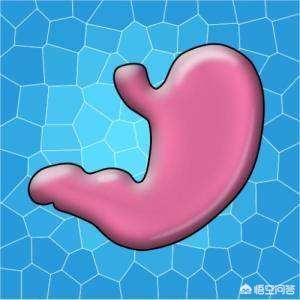
Above understand the mechanism of aspirin causing gastritis and gastric ulcer, then when taking aspirin, what are the ways to reduce the damage to the stomach? You can pay attention to the following aspects: 1, take after meals. 2, with the use of acid inhibitors. 3, and other non-steroidal anti-inflammatory drugs as far as possible not to be used in conjunction. 4, the use of small doses.
Respondent: Haiyan Feng, M.S., M.A.
Welcome to Apricot Island for more useful health knowledge.
This question and answer are from the site users, does not represent the position of the site, such as infringement, please contact the administrator to delete.